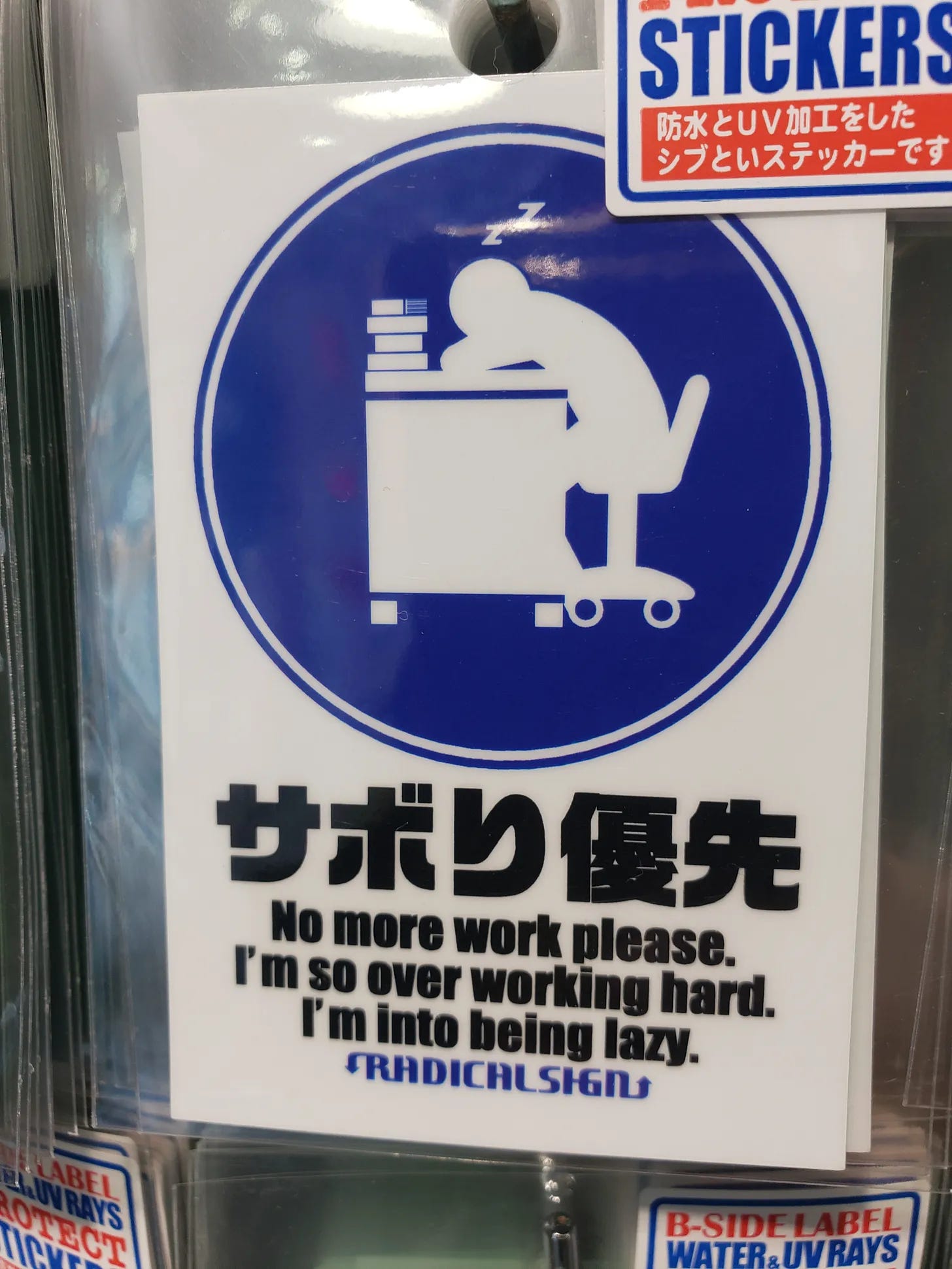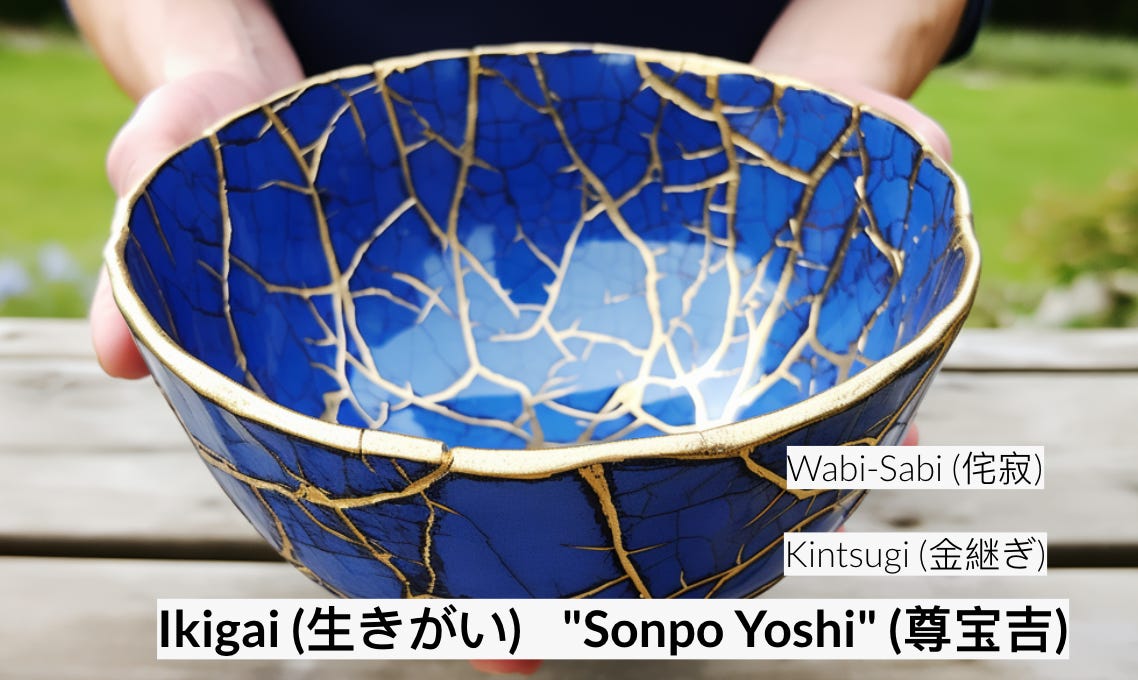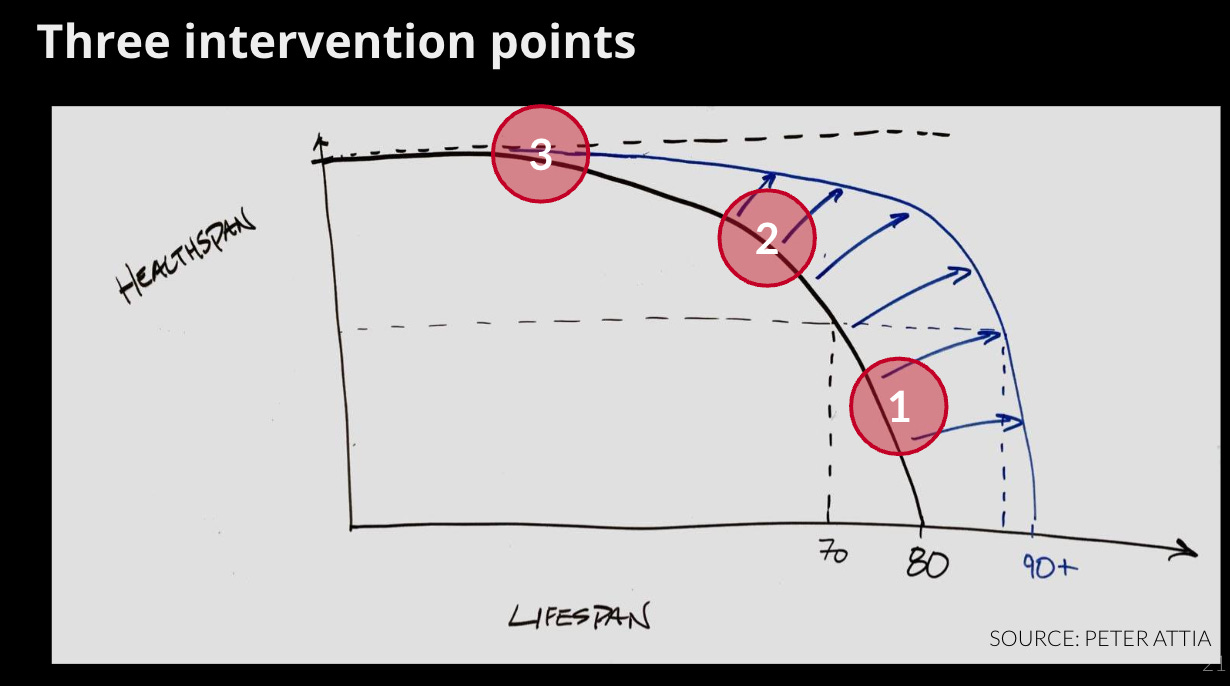GDP vs Life
LF89 It's time we replaced an obsession with GDP with an obsession for maximising wellbeing throughout our lives
The Karoshi question
The Japanese have a term for people committing suicide because of pressures at work: karoshi, literally ‘overwork death’. Japan is actually only has the fourth highest suicide rates in the OECD (South Korea’s is way higher) and has happily been on a downward trend, despite well-publicized recent stories. It’s not just Japan; every nation on earth that should be asking whether its economic model is truly serving its citizens and society.

The reality is that most countries are on the hamster wheel of GDP growth, and the result is that our mental well-being, our society and our planet is under increasing, potentially existential pressure.
This post is about my talk at Independent Ageing (see event coverage in LF87) in Japan last week that explored this idea. It suggested that a focus on GDP has led us down a dangerous path, and devoting our collective energies to improving healthspan, healthy longevity and / or well-being would be a better goal. Below is some context to go along with the slides - these ideas are certainly not fully formed but aimed to spark ideas and conversation.
A pyrrich GDP victory?
Japan has excelled economically since the Second World War, and is now able to boast the world’s third highest GDP (though GDP per capita is actually only in the middle of the pack). This is quite an accomplishment for a country that doesn’t have a lot of natural resources (it imports most of its food (apart from rice), energy, raw materials). The country is in many ways the pinnacle of civilisation - Greater Tokyo is home to 37m people - and yet wherever I go in the city it’s clean, efficient and has transport infrastructure I can only dream about. Economics blogger Noah Smith puts it well:
Gorgeously manicured plants surround immaculate, well-designed buildings. The restaurants and shops and entertainment options are intoxicatingly, fabulously infinite. The space is crowded yet always somehow serene, and you’re always within a few minutes’ walk of a train station that will take you anywhere you need to go. Japan has achieved feats of urban design and planning that no other country approaches, supported by a culture both unusually peaceful and startlingly creative.
However, all is not rosy. Real wages have been falling and productivity is low, due in part to a corporate culture that emphasizes time in the office.
World on the brink
More broadly than Japan, an obsession with GDP has been driving societal and environmental stress. A post by Dark Matter Labs (see below) cites Eric Beinhocker’s work that shows how GDP is an encapsulation of a deeply held worldview focus on humans as rational economic actors, only concerned with consumption and maximising their own wellbeing, with disastrous results for the rest of the planet.
“GDP is not just a metric, but the tip of the iceberg of a layered economic infrastructure with an embedded worldview: one that perceives and positions humans as rational, profit-maximising, disembedded beings” - Dark Matter Labs
Alternative metrics
What gets measured gets managed, and GDP is now entrenched. But what if instead of GDP our politicians were looking at the difference between healthspan and lifespan - how many days alive are lived in poor health? Or broader still, the Wellby, which subjectively measures wellbeing over a year.
There are no doubt many who would push back on the idea of moving from GDP because we need growth to raise living standards. But I’m suggesting we measure living standards more directly. It’s anathema to suggest to the modern capitalist society that consumption is not the key to happiness, but as most older people (and the Harvard study) will attest, live satisfaction comes from long-term relationships not short term shiny objects.
(Now, old, broken, shiny objects on the other hand - as the Japanese concept of kintsugi shows - can be beautiful and life affirming…)
Three intervention areas for prevention
Delivering on healthier longer lives as a new societal goal require systems wide changes. The presentation focused on delivering ‘prevention’ in three areas:
Preventing the loss of dignity
At the end of life, enabling elevated experience in nursing homes via sophisticated technology (such as SOMPO’s egaku, or interactive AR systems) is one direction, but also allowing residents to look after a simple house plant has been seen to improve life experience for those living in nursing homes.
Preventing institutionalization
Keeping people out of institutional care and getting them back on their feet when they are starting to get frail will require new more patient-centric care models that emphasize independence and recovery. Startups focusing on diabetes prevention and management (such as Health2Sync, Twin Health and Virta Health) and innovations bringing care to the home such as BioFourniss and Medically Home) are just a handful at the forefront of this shift.
Preventing sickness
This is where we need to be - driving healthy behavior change earlier in the lifecourse. The first thing doctors today ask you is “what’s wrong?”, generally not getting engaged (or paid) until someone has a diagnosable disease, even if that disease could be avoided with a little forethought. Here Peter Attia, Blue Zones, Vitality and Phenome Health among others are building the foundations for a more preventative, predictive and proactive model of care- maintaining health, not addressing sickness.
These areas, especially the last, require significant mindset and paradigm shifts, research, investment and collaborative action, and would be in my view a more worthy moonshot for all countries, not just Japan, as we seek fixes to dire situation that an obsession with GDP has created.





